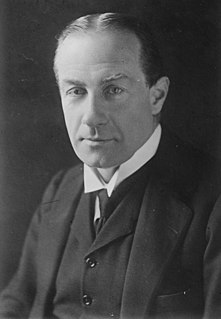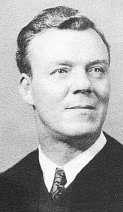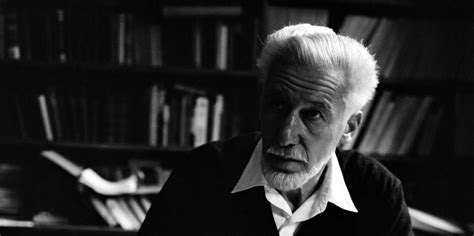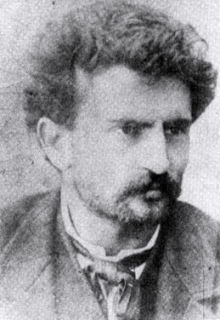Ein Zitat von Alex Comfort
Anarchismus ist jene politische Philosophie, die die Maximierung der individuellen Verantwortung und die Reduzierung der konzentrierten königlichen, diktatorischen, parlamentarischen Macht, also der Institutionen, die lose unter dem Namen „Regierung“ bekannt sind, auf ein verschwindendes Minimum befürwortet.
Verwandte Zitate
Sie können nicht zwischen einer Parteiregierung und einer parlamentarischen Regierung wählen. Ich sage: Sie können keine parlamentarische Regierung haben, wenn Sie keine Parteiregierung haben; und wenn Herren daher die Parteiregierung verurteilen, greifen sie den Regierungsplan an, der meiner Meinung nach dieses Land groß gemacht hat und von dem ich hoffe, dass es auch weiterhin groß bleiben wird.
Odonianismus ist Anarchismus. Nicht das Bomben-in-der-Tasche-Zeug, das Terrorismus ist, mit welchem Namen er sich auch immer zu würdigen versucht, nicht der sozialdarwinistische wirtschaftliche „Libertarismus“ der extremen Rechten; sondern der Anarchismus, wie er im frühen taoistischen Denken vorweggenommen und von Shelley und Kropotkin, Goldman und Goodman dargelegt wurde. Das Hauptziel des Anarchismus ist der autoritäre Staat (kapitalistisch oder sozialistisch); Ihr moralisch-praktisches Hauptthema ist die Zusammenarbeit (Solidarität, gegenseitige Hilfe). Es ist die idealistischste und für mich interessanteste aller politischen Theorien.
Aber es gibt keine Institutionen auf der Erde, die es jeder einzelnen Person ermöglichen, an der Ausübung der Macht mitzuwirken, denn Macht ist Befehl, und jeder kann nicht befehlen. Die Souveränität des Volkes ist daher nichts anderes als eine Fiktion, die sich auf lange Sicht als zerstörerisch für die individuellen Freiheiten erweisen muss.
Die Menschen sind sicherlich beeindruckt von der Aura der schöpferischen Kraft, die ein Schriftsteller ausstrahlen kann, können sie aber mit ein paar gut gewählten Fragen leicht zerstören. Bob Shaw hat beobachtet, dass die tödlichsten Fragen meist als Paar auftauchen: „Haben Sie etwas veröffentlicht?“ – frei übersetzt: Ich habe noch nie von dir gehört – und „Unter welchem Namen schreibst du?“ – frei übersetzbar als: Ich habe definitiv noch nie von dir gehört.
Wenn die Segnungen unserer politischen und sozialen Lage nicht allzu hoch eingeschätzt werden, können wir die Verantwortung und Pflicht, die sie uns auferlegen, kaum überbewerten. Wir möchten, dass diese Regierungs-, Religions- und Bildungsinstitutionen sowohl weitergegeben als auch genossen werden. Wir befinden uns auf der Linie der Übermittlung, durch die alles, was durch den Geist und die Bemühungen unserer Vorfahren erreicht wurde, an unsere Kinder weitergegeben werden soll.
Anarchismus ist die Abschaffung der Ausbeutung und Unterdrückung des Menschen durch den Menschen, das heißt die Abschaffung des Privateigentums und der Regierung; Anarchismus ist die Zerstörung von Elend, Aberglauben und Hass. Deshalb wird jeder Schlag gegen die Institutionen des Privateigentums und die Regierung, jede Erhöhung des Gewissens des Menschen, jede Störung der gegenwärtigen Verhältnisse, jede entlarvte Lüge, jeder Teil der menschlichen Tätigkeit der Kontrolle der Behörden entzogen, alles Die Stärkung des Geistes der Solidarität und Initiative ist ein Schritt in Richtung Anarchismus.
Unsere Gründerväter waren sich darüber im Klaren, dass konzentrierte Macht der Feind der Freiheit und der Menschenrechte ist. Sie wussten, dass das amerikanische Experiment der individuellen Freiheit, des freien Unternehmertums und der republikanischen Selbstverwaltung nur dann erfolgreich sein konnte, wenn die Macht weit verteilt war. Und da in jeder Gesellschaft soziale und politische Macht aus wirtschaftlicher Macht erwächst, sahen sie, dass Reichtum und Eigentum weiträumig unter den Menschen des Landes verteilt werden müssten. Der Wahrheitsgehalt dieser Einsicht ist sofort ersichtlich.



































